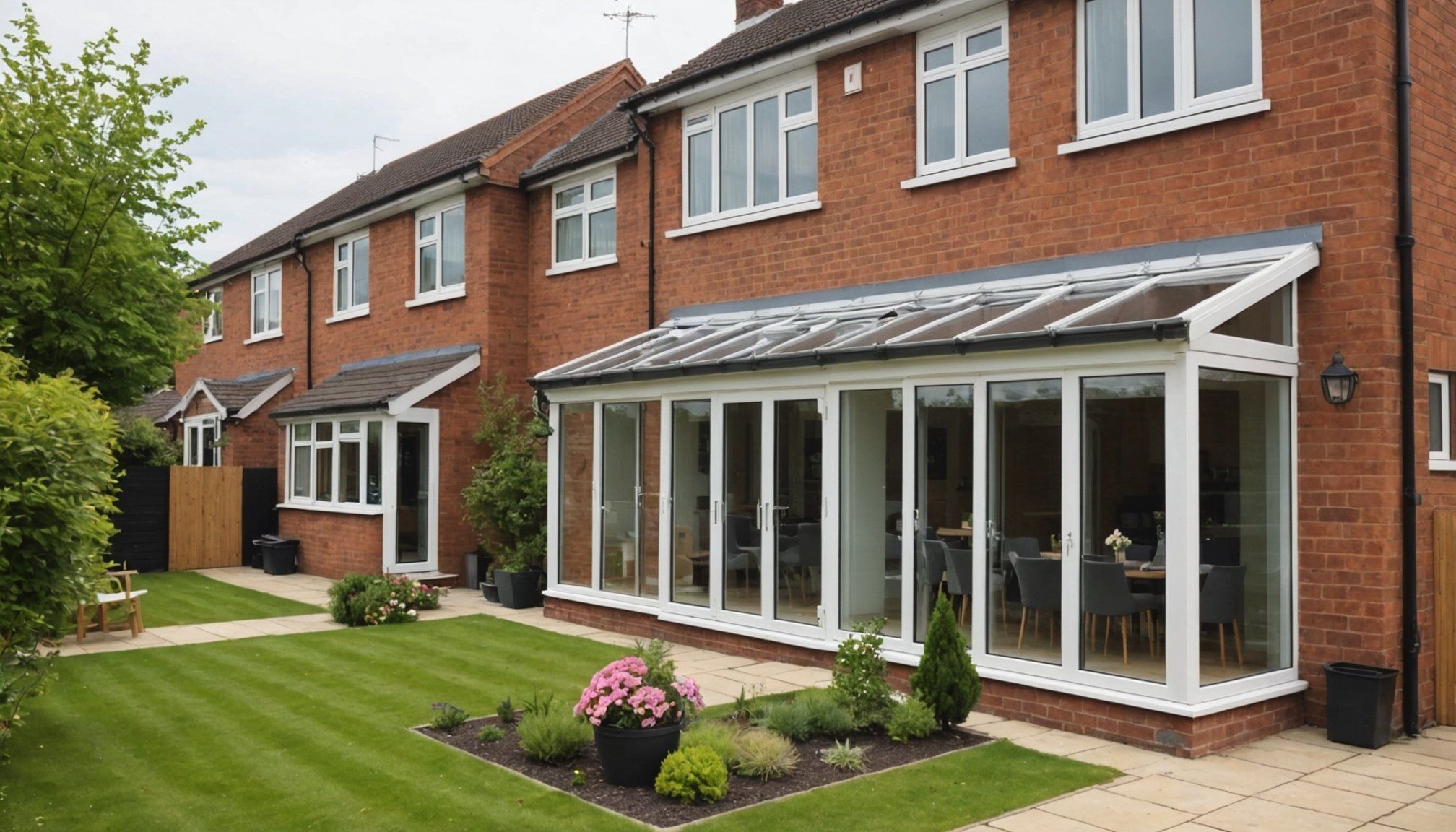Overview of Government Grants for Sustainable Home Improvements
Government grants are financial incentives provided by authorities to assist homeowners in making eco-friendly upgrades. These grants aim to promote sustainable home improvements that enhance energy efficiency and resilience against environmental challenges. By utilising these financial aids, homeowners can significantly reduce both their carbon footprint and energy costs, contributing to a broader effort towards sustainable living.
Various sustainable home improvement projects qualify for such grants. These may include installing renewable energy solutions like solar panels and upgrading home insulation to better conserve energy. Additionally, improvements may cover energy-efficient window installations, smart heating systems, or even water conservation technologies.
In parallel : Revolutionizing Security: Cutting-Edge Technologies Every UK Property Owner Should Embrace
The vast impact of sustainable improvements on energy efficiency cannot be understated. By reducing dependency on non-renewable energy sources, these enhancements result in lower utility expenses and offer long-term cost savings. Such initiatives also raise property value whilst aligning with environmental standards and regulations.
Ultimately, government grants serve as effective catalysts encouraging property owners to undertake eco-friendly projects. By understanding the importance and utility of these grants, homeowners can play an active role in the global transition towards a more sustainable energy consumption model.
Also to see : Overcoming Financing Hurdles: Strategies for Funding UK Properties Requiring Major Repairs
Key Government Grants Available in the UK
Navigating the landscape of specific grants provided by the UK government can open up multiple funding opportunities for sustainable home improvements.
Energy Company Obligation (ECO)
The ECO is a vital government initiative designed to support energy-efficient upgrades. Primarily, it targets low-income households and those in energy poverty. Eligibility is generally linked to receipt of specific benefits or a local council-fueled referral. The application process typically involves liaising with an energy supplier or a designated scheme operator. Timelines vary, but once eligible, installations can happen relatively swiftly, fulfilling energy efficiency objectives.
Green Homes Grant
While the Green Homes Grant has closed for new applications, its impact remains notable. It provided significant funding for improvements like insulation and low-carbon heating systems. For those who already received vouchers, managing funding involves submitting evidence of completed works for reimbursement.
Local Authority Grants
Local councils across the UK offer diverse funding opportunities that vary by region. These grants cater to specific community needs, creating tailored solutions. Checking with your local authority is crucial for updates on available specific grants. Accessing these grants typically involves fulfilling regional criteria and completing a direct application through council channels.
Eligibility Criteria for Government Grants
Understanding the eligibility requirements for government grants is crucial for accessing funding for sustainable home improvements. Each grant type has distinct grant qualification parameters. For instance, the Energy Company Obligation (ECO) primarily targets low-income households, with eligibility often linked to specific benefits or council referrals. Conversely, Local Authority Grants may have region-specific requirements, varying greatly across the UK.
It’s important to dispel common misconceptions about eligibility. Many believe that only low-income households qualify for all types of grants. However, while income levels are a significant factor, property type often plays a crucial role in determining eligibility as well. For example, listed buildings or properties in conservation areas may experience different criteria.
Evaluating income levels alongside property characteristics is paramount. Many grants consider these factors to ensure the funding supports those who will benefit most. Homeowners should carefully review the criteria for each specific grant and ensure their circumstances align. By comprehending these requirements, applicants can streamline their preparation and increase their chances of successful funding applications.
Strategies to Maximize Funding from Government Grants
Navigating the grant applications process efficiently is crucial for those seeking to maximise funding opportunities. Common pitfalls include insufficient awareness of specific eligibility requirements, incomplete documentation, or misaligned project goals with grant objectives. Understanding these missteps allows applicants to enhance their chances of being successful.
One effective strategy is to tailor your project proposal in a way that directly aligns with the objectives of the grant. Highlighting how your project meets grant criteria can hold significant weight. Clearly outlining the positive impact of your sustainable upgrades on energy efficiency, as well as any economic benefits, reinforces your proposal’s viability.
Precise documentation is paramount. Ensure all financial details, project timelines, and expected outcomes are meticulously documented. Adhering to specified application guidelines not only demonstrates preparedness but also professionalism.
Keeping abreast of any updates or amendments to grant processes can aid in adapting proposals accordingly. Engaging with official channels or seeking advice from experienced professionals may provide insights into optimising your grant submissions. Remember, thorough preparation and strategic presentation can play a decisive role in securing funding for your sustainable home improvements.
Examples of Sustainable Home Improvements
Exploring sustainable upgrades offers numerous benefits for homeowners, enhancing both energy efficiency and eco-friendly living. Here’s a look at some impactful home improvements.
Insulation Improvements
Upgrading your home insulation is a straightforward way to increase energy efficiency. Enhanced insulation minimizes heat loss during winter and retains cool air during summer, reducing reliance on heating and cooling systems. Common materials include fibreglass, spray foam, and mineral wool, each offering distinct benefits. It’s estimated that proper insulation can slash heating costs by up to 40%, making it a crucial improvement for most.
Renewable Energy Installations
Investing in renewable energy solutions, such as solar panels or heat pumps, presents a clear path toward sustainability. Although initial costs can be significant, the long-term savings from reducing electricity bills often offset these expenses. Many homeowners find themselves benefiting from government incentives which further alleviate upfront costs. Successful installations across the UK demonstrate that, over time, these investments largely pay for themselves.
Energy-Efficient Windows and Doors
Replacing old windows and doors with energy-efficient options can make a noticeable difference in home energy efficiency. Modern products are designed to reduce heat transfer, enhance insulation, and improve overall comfort. With higher energy ratings, they fulfill stringent standards and often qualify for financial incentives that support eco-friendly renovations.
Resources and Official Channels for Grant Applications
Accessing official resources is crucial when applying for government grants for sustainable home improvements. Such resources offer detailed guidance on grant application support and keep homeowners informed on eligibility and funding options.
Begin by visiting UK government websites like GOV.UK which provide comprehensive information on available grants, eligibility requirements, and application procedures. They offer up-to-date, authoritative details directly from the central government, making them a reliable starting point for any applicant.
In addition to online resources, consider utilising advisors or consultants who specialise in government grant applications. These professionals can offer tailored advice and help navigate the complex application processes, ensuring your submissions meet all required criteria.
For homeowners, energy saving calculators are valuable tools for estimating potential financial savings from proposed sustainable improvements. These calculators are often available on government or energy suppliers’ websites, providing actionable insights into the impact of eco-renovations.
Staying informed about grant updates and new programs is essential, as these can affect eligibility, funding amounts, and availability. Monitoring official channels regularly ensures you receive the most accurate and timely information, enhancing your opportunity to secure funding for your sustainable initiatives.
Frequently Asked Questions about Government Grants
Understanding government grants for sustainable home improvements can be complex. Here, we address several common queries that often arise during the grant processes.
1. Are government grants repayable?
Generally, government grants for home improvements are non-repayable, meaning you do not need to pay back the funds, provided the conditions and scope of the funded project are met. It’s vital to review the specific terms of each grant as some may have unique requirements.
2. What is the typical timeline for receiving funding?
Timelines can vary; however, once you’ve submitted a complete application and all criteria are met, funding is generally received within a few months. Factors such as demand and specific grant processes can impact these timelines, so checking updates from official grant application support channels is advisable.
3. Is there a penalty for not using the entire grant amount?
Unspent funds usually need to be returned or reallocated, in line with the grant’s terms. Contact the grant provider via the official UK government websites for guidance.
4. Can one apply for multiple grants simultaneously?
Yes, homeowners can apply for various funding opportunities, provided each application’s criteria are met.











